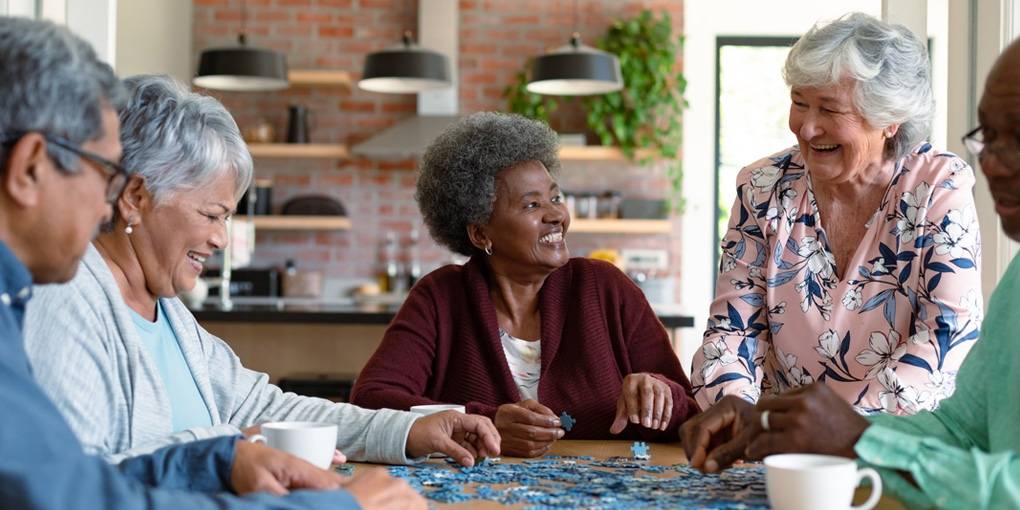Beyond Bingo: The Transformative Benefits of Recreation Programs in Long-Term Care
Apr 19, 2025 ArticlesWhen many people think of recreation programs in long-term care centers, they often picture residents gathered for a lively game of bingo. While bingo has its place in the hearts of many, the reality is that recreation programs offer so much more. These programs are thoughtfully designed to improve the quality of life for residents, address their individual needs, and foster a sense of purpose and community.
We invite you to take a closer look at the purpose behind recreation programs in long-term care centers and the profound benefits they provide for residents and their families.
Promoting Physical Health and Wellness
Staying active is essential at any age, and recreation programs help residents maintain their physical health through tailored activities. Programs like chair yoga, dance, walking clubs, and group exercise classes support mobility, balance, and flexibility. By engaging in these activities, residents can prevent falls, manage chronic conditions, and enhance overall strength and endurance.
For example, a simple morning stretch class might help a resident reduce joint stiffness, helping them perform daily tasks more comfortably and maintain a sense of independence.
Enhancing Cognitive Function
Recreation programs often incorporate activities that challenge the mind, such as trivia, puzzles, creative writing, and brain games. These programs are particularly valuable for residents living with dementia or other cognitive impairments.
Evidence-based programs like music therapy and memory cafés stimulate memory recall and improve focus, while art classes encourage creative thinking and self-expression. These activities not only preserve cognitive function but also provide a meaningful outlet for emotions. “Every month, our corporate team creates an engaging program for every facility to do. This month, we created a Dice Trivia game where residents could toss the dice, and whatever number came up, they would answer the coordinating personal trivia question to share with their friends,” explained Rivky Jacobs, Corporate Director of Marketing.
Fostering Emotional Well-Being
Adjusting to life in a long-term care setting, even just for a short rehabilitation stay, can be challenging, but recreation programs are vital in creating a welcoming and supportive environment. Activities like pet therapy, gardening, and music sessions offer therapeutic benefits, reducing stress, anxiety, and depression.
“Residents often experience a boost in self-esteem and a sense of accomplishment when they complete a project, learn something new, or engage in meaningful tasks. For example, a resident who enjoys painting may find joy in seeing their artwork displayed in a community art show,” explained Tracy Aiello, Regional Activities Director.
Building Social Connections
Loneliness and isolation are common concerns for older adults, but recreation programs encourage residents to connect with others. Group activities like book clubs, cooking classes, and themed social events foster camaraderie and a sense of belonging.
Family-focused events, such as holiday celebrations and intergenerational programs, strengthen bonds between residents and their loved ones, creating cherished memories that enhance the care experience.
Celebrating Individual Interests and Cultures
“The most impactful recreation programs are resident-centered, catering to individual preferences, hobbies, and cultural backgrounds. By offering diverse activities such as music from different eras, spiritual services, and cultural festivals, residents feel valued and understood,” explained Tracy.
When a resident is empowered to pursue their passions—whether it’s knitting, gardening, or leading a group discussion—they regain a sense of purpose that enriches their daily life.
Empowering Residents to Thrive
The ultimate goal of recreation programs is not merely to fill time but to create opportunities for residents to thrive. These programs are thoughtfully designed to address the whole person—body, mind, and spirit—while fostering a sense of joy and fulfillment.
“When families understand the deeper purpose of recreation programs, they see long-term care not just as a place for their loved ones to live, but as a vibrant community where they can continue to grow, connect, and contribute,” Christina Fleming, SVP of Communications explained.
Breaking the Bingo Stereotype
While bingo remains a cherished pastime, today’s recreation programs are so much more dynamic and impactful. They’re an essential part of long-term care, rooted in the belief that every resident deserves to live a meaningful and engaged life.
“As a family member or potential resident, when you see the range of activities available in a long-term care center, know that there’s intention behind every program. These activities are carefully crafted to improve the physical, emotional, and social well-being of residents, ensuring they feel valued, connected, and supported in their care journey,” Christina added.
By embracing the purpose behind recreation programs, we can break the bingo stereotype and shine a light on the transformative power of meaningful engagement in long-term care.
